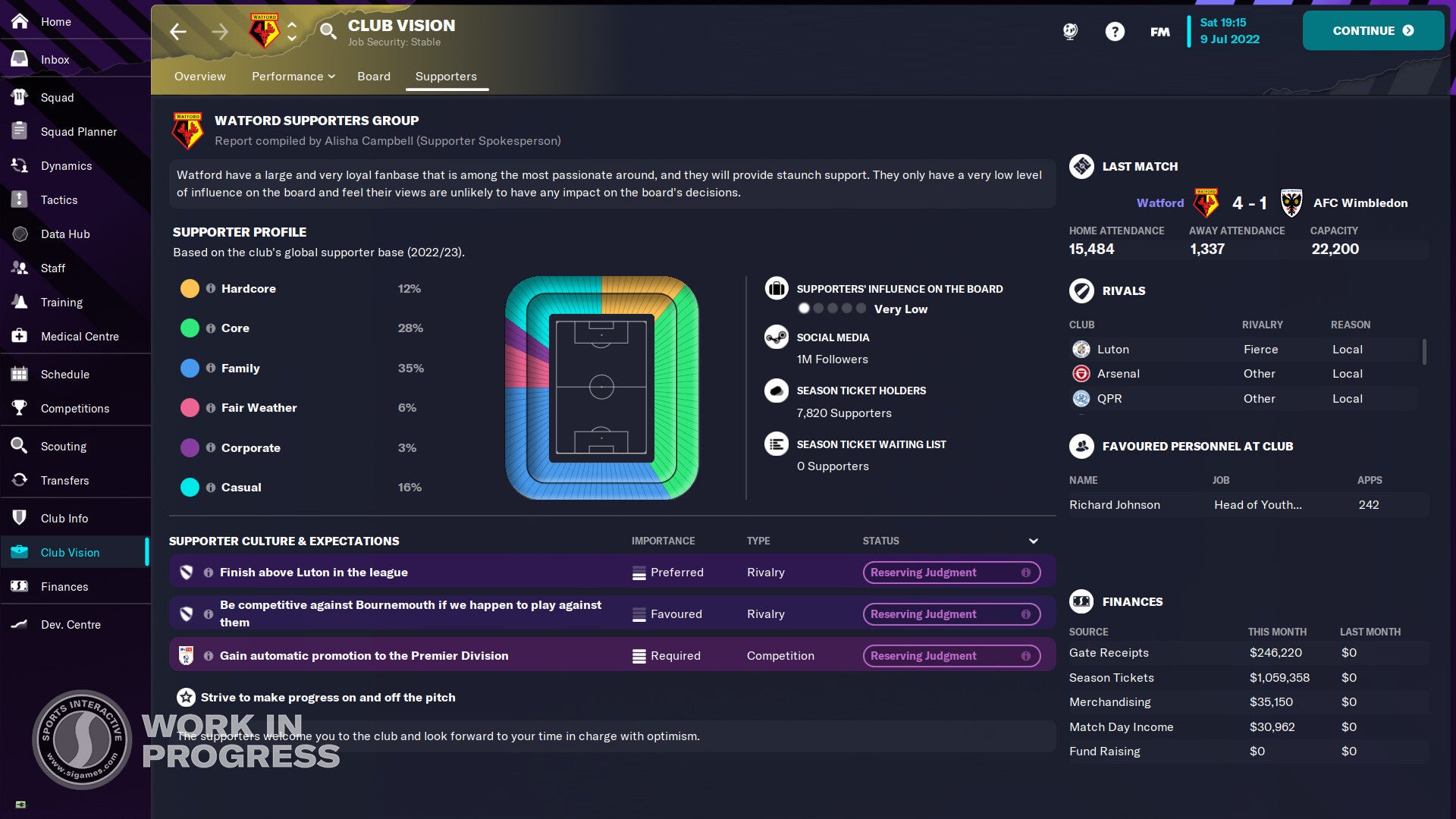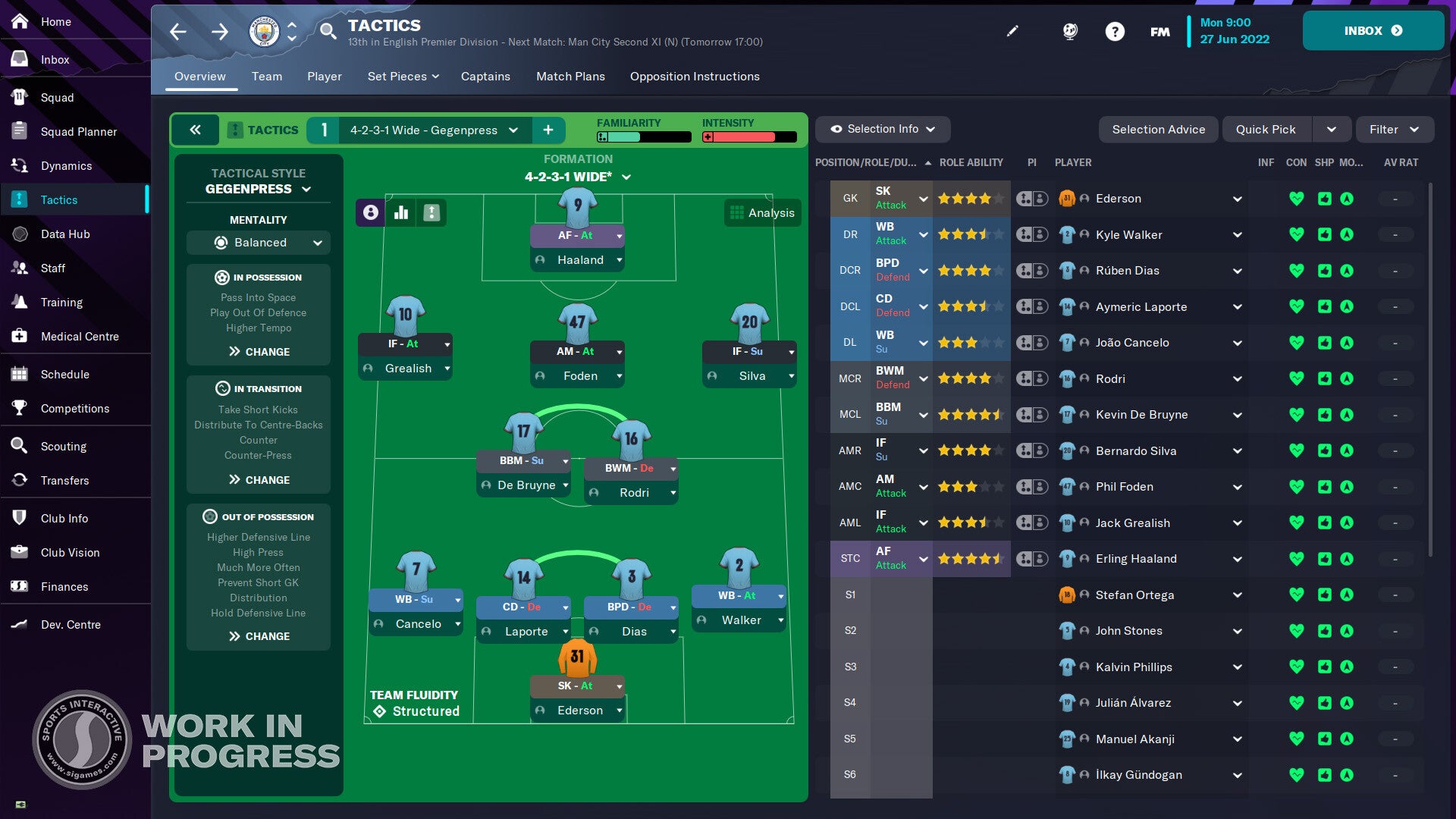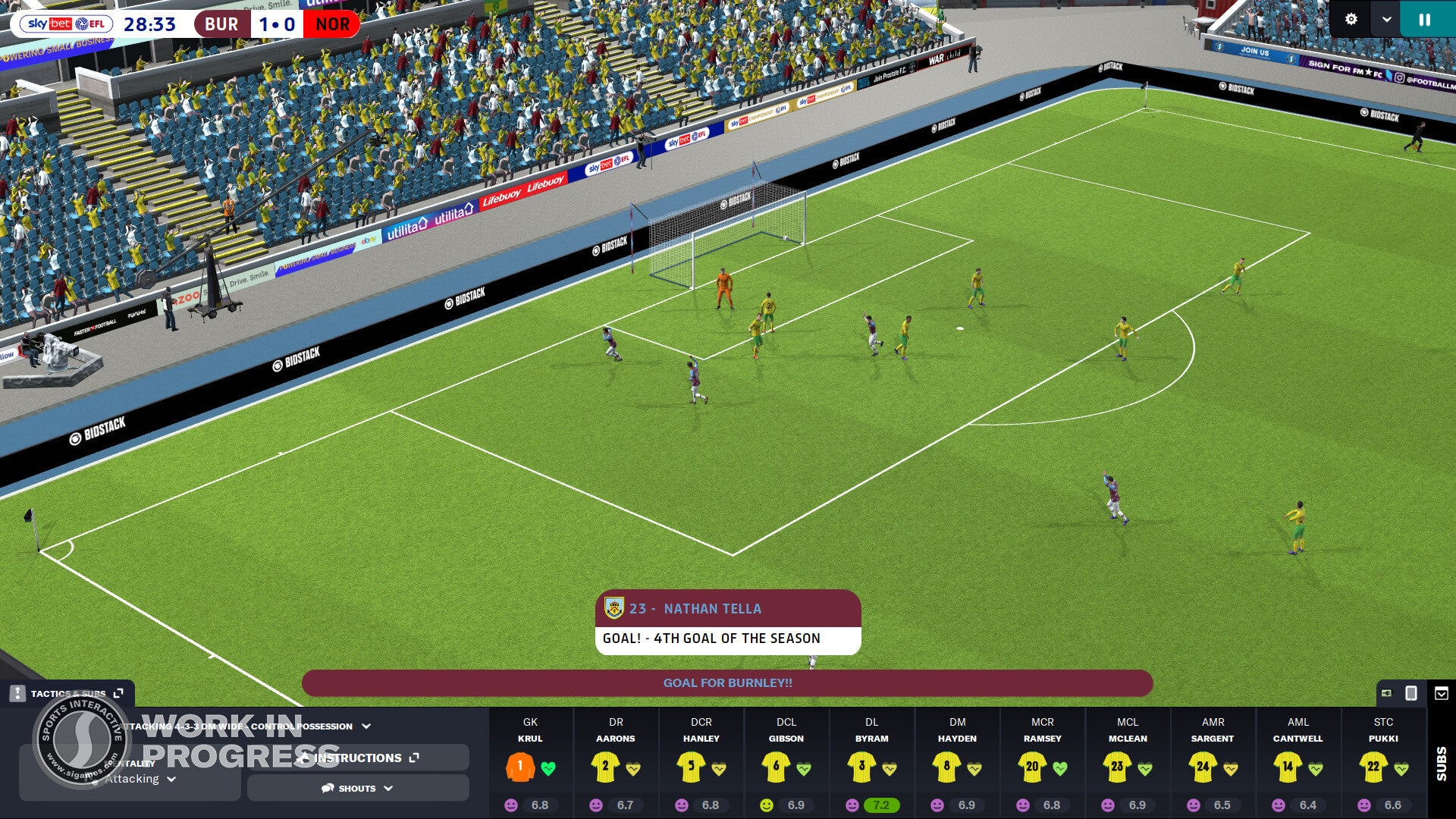Of course, we’ve all had improbably illustrious careers as football managers by now. This isn’t just the 19th instalment of Football Manager since SI’s split with Eidos, but also 30 years since the original Championship Manager debuted back in 1992. Tasting continental victory for the first time was pretty magical, once upon a time. But even with revamped CL presentation and THAT song (The Champiooons!) finding their way into this latest release, you can’t help but feel like you’re revisiting very well trodden ground by now when you topple PSG in the final. They say football’s a game of cliches, and by the time of FM23’s arrival, one such cliche seems especially pertinent: familiarity breeds contempt. This is the central conflict for any studio working to an annual release cadence, of course, and nobody has an entirely satisfactory answer to it. It’s not Sports Interactive’s fault in particular that the industry culture has swayed towards greater acceptance of increasingly incremental releases. But there comes a point when you get a sense that culture has gone too far. And when you begin a review by stating that there’s some Champions League presentational elements in this new one, you know you’ve reached it. It’s not entirely bereft of fresh content elsewhere. It’s just that those new features just aren’t, hand on heart, very exciting. A new suite of squad planning menus. An overhauled fan confidence system which doesn’t make a huge impact on the way you go about your business. Reworked AI managers who, so says the game’s own marketing materials, respond to your tactics with improved decision-making. I don’t refute that - it’s just that you have to dig so far into heatmaps and graphs to get a sense of how and where it’s happening, I don’t feel especially spurred on to launch into another 300+ hour career off the back of it. I’m not for a second suggesting SI’s hugely talented and dedicated team simply haven’t put in the work - rather, what new features aren’t here just don’t change the way I play the game enough. Of course, the reason titles like this so often get a bye is because the experience is still fundamentally sound. Who am I kidding - it’s still Football Manager, which means it’s still capable of enthralling you in absolute terms, fostering an obsession with numbers above 15 that verges on sexual. It’s still built around a player and staff database so unfathomably detailed that real scouts and data analysts use it as a recruitment tool. It still allows a really hands-on approach to building a formation and a system to support it, featuring more player roles than anyone truly understands, if we’re being honest. If you put me on a football pitch and told me to operate as a Segundo Volante, I’d cry into my hands and run off. And yet I routinely ask the very same of fifth-tier players. Crucially, it still captures your imagination. You dream up such grand plans for whichever team you’re put in charge of, and you simply have to see them come to fruition. It’s compulsive on a level Destiny 2 wishes it was. When you’re in the throes of an FM save, every second of the day that you’re not clicking the continue button or watching the match engine feel like wasted time. Football Manager certainly isn’t broken, then. But this isn’t like a COD campaign you spend seven hours with every year. Each release asks for a lot of your time, and over that vast amount of hours every minor rankle becomes amplified. Playing FM is a lot like a marriage, in that way. So the fact that gegenpressing is still so effective, and seems to have such a minor effect on stamina, even after players have pointed this out and voiced their desire for it to be fixed several games ago, feels like a bigger deal than it might otherwise. The set piece management screen is still a fussy, fragile thing, prone to reshuffling players at the slightest provocation, and has been that way for several releases. If you’re a long-time FM player too, you’ll have your own very specific grievances of this nature. And since you ask, obviously Southend achieved back-to-back promotions. What else from the manager who helped Fiorentina lift the Champions’ League trophy and brought York City to the Premier League? We gegenpressed our way up the leagues, maintaining an impressive grasp of quite a complex tactical system built around a 5-2-3, and never had to change that formation in two and a half seasons. If I was a data analyst, I’d be able to tell you exactly why it was so effective, and why despite the AI’s newfound reactive decision-making it was unable to counter it. But I’m not. The heatmaps give me the fear. I can just about get my head around the passes and shots attempted diagrams, but truthfully all I take from them is whether to tick the ‘work ball into box’ button. Part of FM’s longevity has been its ability to keep evolving alongside football and recreate the culture of the sport, and right now that culture is rooted in data analysis. So it’s only fitting that SI has made it a point of emphasis for the last few titles, just as it reflected post-Brexit work permits, VAR and the Bosman ruling over the years. But the overall effect, the sheer density of data onscreen at a given moment as a result of this, is pretty daunting. My inbox screen shows me not just a feed of 20+ news stories and staff interactions, but four league tables, a list of recent transfers, recent results and upcoming events. Between highlights, the match engine is overlaid with an absolutely frightening volume of information. All my starting XI’s player ratings and condition levels along the bottom. Eight different match stats underneath the score in the top left. In the middle of the screen, a feed of assistant manager suggestions and scoreline updates from elsewhere in the league. And then on the right, the ’tablet’, which is actually a modular system of six customisable menus. From my ears, eyes and nose: blood. FM’s presentation has been trending this way for a decade. Bound by an annual release schedule, there’s a sense that this ever-multiplying array of readouts absolutely everywhere is trying to add value, trying to make life easier and convey progress for the series. Its intention is absolutely noble. But it gives me a headache. I spent several months with Champ Man 01/02 during lockdown, and not once - not a single time - did I miss not having all that information emblazoned over every screen. This feels like as good a moment as any, 30 years after Champ Man’s debut, to stop and really take stock of FM’s current form. A vastly engrossing management game with depth and detail threatening to spill over out of the screen at you, made by a studio whose talents and understanding of the sport’s intricacies are absolutely unrivalled. A £40 proposition you can easily lose a hundred enjoyable hours to. All true. But what would we have made of the present match engine back in November 2008 when it debuted in its earliest form? It’s hard to imagine we’d agree it looked like 14 games’ worth of progress. I’d love to see what this game could be if its creators had longer to reinvent and re-release it. I could survive without a new game for a year or two, and I’d probably pay at least half the usual price just for an updated database, if it meant I was funding something that felt like a meaningful step forward down the line. It’s like I told Southend prospect Max Haygarth in my office, during that opening season: I’m resting you now so you can live up to your full potential later.


